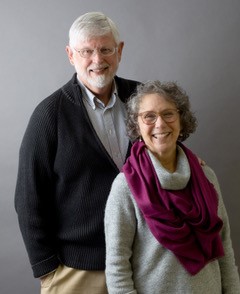
Heaven doesn’t applaud righteousness. It expects it.
In Luke 17, Jesus asks His disciples a series of rhetorical questions on the nature of servant-hood. “Will any one of you who has a servant plowing or keeping sheep say to him when he has come in from the field, ‘Come at once and recline at table’?” At the end of a long day, Jesus asks, does a master invite his servants to sit back, relax, and feast at the expense of his time and effort? “Will he not,” Jesus continues “rather say to him, ‘Prepare supper for me, and dress properly, and serve me while I eat and drink, and afterward you will eat and drink’?” The servant shouldn’t expect to be served, should he? Christ then concludes the line of questioning, “Does he thank the servant because he did what was commanded?” No, of course not! “So you also, when you have done all that you were commanded, say, ‘We are unworthy servants, we have only done what was our duty.’” (Luke 17:7-10) When we pursue God, study His word, faithfully join in worship, and give of our time, talent, and treasure, we have only done that which we ought to have done. And while a selfish, lazy apathetic, and complacent church may praise us for this and cheer our sacrifice; there will be no applause from God. We only did what we ought to have done and, really, we ought to have done it a whole lot better. Whether you were led into the Kingdom of God by your outstretched hand or dragged by your heel, remember that the Lord led you all the same into His blessing. You live now beside quiet waters, you diet on milk and honey, and your lines fall in pleasant places. What then is the evidence of your love for God and your gratitude for His grace? When one looks at a hardwood forest in the wintertime, it’s not readily apparent which trees are alive and which are dead; seeing as how none of the trees have any leaves. But come spring, as the maple, oak, birch, and poplar fill out with foliage, those trees which are without root and dead will stand out in stark contrast to those that are verdant and alive. As the congregation rises to sing on a Sunday morning, it stands as a forest of faithful folk in winter. It’s not readily apparent which in attendance are spiritually alive and which are spiritually dead. But with every benediction comes the springtime of our faith. It will be by the Spirit’s fruit worked out throughout the week that will ultimately tell the tale. St. Augustine liked to argue that sin was its own punishment and righteousness its own reward. Living for the Lord is only sustainable when we love it; when we’ve become alive to it. Consider asking God to make righteousness your joy and holiness your nature. See if He doesn’t answer your prayer and turn the ought to instinct.






